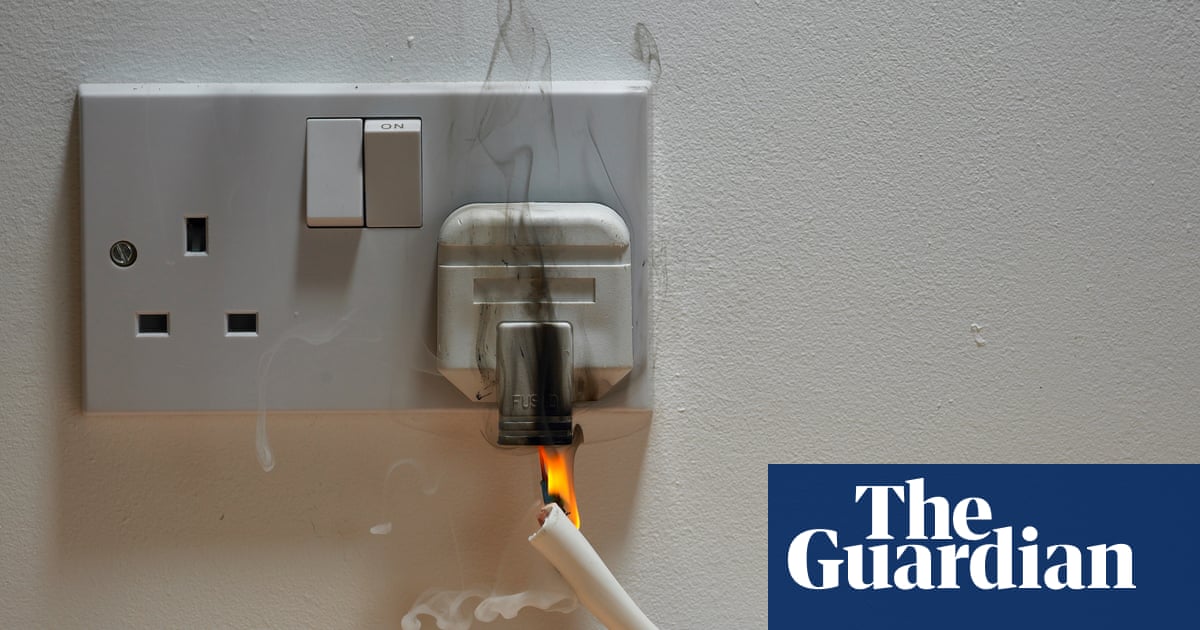Illegal and potentially dangerous plug-in “energy-saving” devices are still widely available for sale to UK shoppers on online marketplaces, according to an investigation.
These so-called “energy-saving plugs” or “eco plugs” – which in some cases cost little more than £5 – can seem appealing to consumers struggling with higher energy bills or who are looking to improve their green credentials, the consumer body Which? said. But it found that several of those it tested failed basic electrical safety standards.
The UK consumer organisation has carried out numerous investigations in recent years, which commonly found that cheap, unbranded electronics bought onlineare often unsafe.
It said its latest findings underlined the need for “tough new laws” to make online marketplaces responsible for ensuring the safety of the products offered on their platforms.
There have been warnings for years about plug-in devices that supposedly help people save on their energy costs but that can ultimately pose a risk of fire or electrocution. In 2011, the Guardian reported onan alert issued by trading standards officersabout an unsafe plug-in device that claimed it could save users 40% on energy bills.
The UK’s Office for Product Safety and Standardslater recalled several devicesavailable to buy via online marketplaces, citing “a serious risk” of fire and electric shock.
Those selling the plugs often claim they can save customers money on their electricity bills by “stabilising” voltage and “balancing” the electric current to “optimise” the performance of household appliances.
However, Which? said its researchers tested eight devices from sites including Amazon, eBay, AliExpress, Shein and Temu, and found no evidence that they worked.
“More concerningly, they failed basic electrical safety standards, meaning they are illegal and potentially dangerous,” said a spokesperson.
Many of the devices made “dubious” energy-saving claims, said Which?, and had attracted a raft of poor customer reviews.
Which? said most of the items its researchers looked at had poor-quality soldering, contained too much lead and were potentially unsafe.
The government’s product regulation and metrology bill isgoing through parliament, and the consumer body said ministers must ensure these new laws gave online marketplaces “clear legal responsibilities” for keeping potentially dangerous products off their sites, “backed up by tough enforcement, including heavy fines, when businesses fall short”.
All the companies told Which? they had removed the relevant product listings.
An eBay spokesperson told the Guardian it used a number of its own measures aimed at preventing unsafe and prohibited listings, and as a result had removed the listings in question before Which? notified it that the products were unsafe.
Shein said it “takes product safety very seriously … Upon learning of any claims, Shein immediately removes the item(s) from its site as a precaution while the company investigates.”
Temu said it “requires traders to meet the safety standards of the markets they are selling to”, and that in this case, its monitoring had flagged the product and removed it from the platform before Which? got in touch.
An Amazon spokesperson said: “We require all products to comply with applicable laws and regulations, and we take action to maintain a safe selection for our customers. These products have been removed.”
A spokesperson for AliExpress told Which? that third-party sellers must comply with the law and with its platform rules, adding: “The listings of the product that failed Which?’s test have been removed.”
